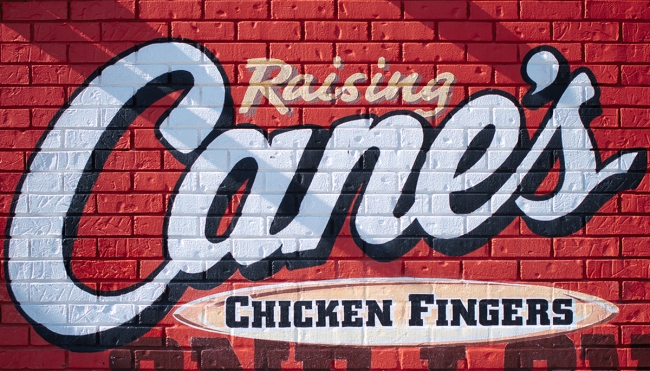It’s been 25 years since the first Raising Cane’s location opened up in Baton Rouge, Louisiana to put a fairly bold business model to the test, as the restaurant specialized in an item traditionally reserved for children’s menus and the kids’ table at weddings: chicken fingers.
That experiment turned out to be a resounding success. The chain now has 600 locations around the world (including the one in Las Vegas where Joey Chestnut set a world record earlier this year) thanks to the popularity of its signature item as well as the trademark “Cane’s Sauce” and the hearty slices of Texas toast that really tie the meal together.
Plenty of fast food companies pride themselves on innovation and are constantly tinkering with their menu as a result. However, Raising Cane’s has been largely content with doing what it does best—a strategy that’s worked out pretty well when you consider it rakes in an estimated $1.5 billion in revenue on an annual basis.
The brand has grown fairly rapidly in recent years, and the attempts to widen its footprint led to Raising Cane’s deciding to expand its chicken finger empire by setting up shop in the town of Hobart, Indiana. However, the company was recently forced to file one of the most absurd lawsuits you’ll ever encounter after running into a slight hitch courtesy of the shopping center they were hoping to call home.
Raising Cane’s sued a property management group for failing to disclose they weren’t permitted to sell chicken fingers letting them sign a lease for a new location
According to The Northwest Indiana Times, Raising Cane’s had plans to construct a new store on a lot at the Crossings of Hobart that was formerly home to a T.G.I. Friday’s after signing a 15-year lease with Schottenstein Property Group.
However, the company ran into a slight hitch after the deal was finalized when it discovered its new landlord had previously signed a deal with a nearby McDonald’s to give them exclusive rights to sell “chicken products” at the shopping center, which isn’t exactly conducive to running a successful business that relies almost entirely on the sale of the chicken fingers prominently featured on its menu and logo.
If we’re operating under the assumption the property group did approximately three seconds of due diligence, it’s hard to imagine how anyone could enter a legally-binding agreement with Raising Cane’s without knowing they’re going to want to sell chicken. The corporation’s attorneys basically said as much in the lawsuit that was filed in federal court, which contains a fairly scathing indictment that reads:
“Despite knowing that the entire business model of Raising Cane’s Chicken Fingers is premised on the sale of chicken fingers, the defendants did not disclose this issue before the lease was executed.
In fact, the defendants specifically represented to Raising Cane’s that there was no exclusivity right that would conflict with Raising Cane’s ability to operate its restaurant. Incredibly, the defendants did not tell Raising Cane’s it would be unable to sell its chicken fingers at the shopping center until nearly eight months later.”
I’m no legal expert, but something tells me this will be a fairly open-and-shut case.

